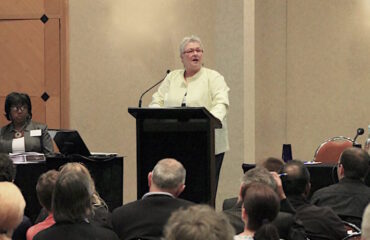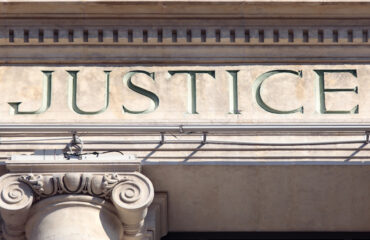The Supreme Court’s decision in Daubert vs. Merrell Dow Pharmaceuticals (Daubert) was an attempt to stem the growth of unreliable scientific evidence that flowed the evidentiary standard fashioned in Frye vs. United State. The Court held that the Frye standard of “general acceptance by the scientific community” could be considered in evaluating expert testimony. However, that standard joined a number of other factors that must considered. It also imposed a new role for judges — “gatekeepers of scientific evidence” — and said it was a judge’s duty to ensure that expert testimony “is not only relevant, but reliable.” While Daubert arose from a civil action for damages, the Court’s holding was broadly understood to apply in both civil and criminal proceedings.
The Daubert standard has caused judges in civil cases to apply a stricter standard in deciding whether to admit expert evidence. A different pattern has evolved in criminal cases. As one review of appellate court decisions involving scientific evidence noted, there is a “sheer paucity” of state criminal appellate court decisions and that caused the authors to conclude the Daubert decision was “irrelevant” in criminal cases.
Criminal versus Civil
The seminal report, Strengthening Forensic Science in the United States: A Path Forward, agreed that Daubert is not being applied in criminal cases: “[D]espite the highly visible efforts to reform the rules governing experts in the civil arena, the junk science ‘debate . . . all but ignored criminal prosecutions’.”
This disparate application of the Daubert standard was highlighted in a study of federal court decisions involving the admission of handwriting expert testimony. The author found that the prosecution’s request to admit expert handwriting testing was allowed in 91% of criminal cases, whereas, in civil cases when offered by plaintiffs, it was not admitted in 64% of the time. The author concluded: “…[I]t’s true: there are two Dauberts.”
Factors to Consider
The emergence of this Daubert “Double Standard” may be attributed to a number of factors. The divergence between civil and criminal pretrial practices is clearly one. Civil and criminal litigation have distinct discovery rules, with the more expansive civil disclosure rules requiring the free exchange information. The civil discovery approach, with its attended expense, is beyond the resources of the typical public defender or private defense attorney and even when an expert is requested by criminal defendants, judges are reluctant to spend public monies for experts in those case.
Another major factor is the prosecution’s unique power over almost all of the expert scientific evidence in a criminal case. The police control the crime scene and resulting physical evidence. The scientific evidence often originates in a government laboratory. In order to see this evidence a criminal defendant in many cases must seek a court order giving the defense access.
Courts are, from a policy perspective, concerned with not overturning the apple cart. Declaring that certain scientific evidence is no longer admissible may open appellate floodgates with defendants seeking to have their convictions overturned.
Finally, scientific evidence offered by the prosecution seems to be held to a lower standard of admissibility than that same evidence would be in a civil case. A review of state and federal published decisions found that prosecutors’ scientific evidence was admitted 95.8% of the time, while criminal defendants’ scientific evidence was admitted only 7.8% of the time.
Science Bench Book for Judges
As one Judge wrote: “[It] cannot be that science is different in criminal cases than in civil ones. Bad science is bad science; unreliable methodologies are unreliable methodologies, no matter the side of the docket….” Judges, in their role as gatekeepers of scientific evidence, have a duty to end the existence of this Daubert “Double Standard”. They can take a step in that direction by downloading and using the free Science Bench Book for Judges created by the Justice Speakers Institute, LLC, and published by the National Judicial College.
Get more articles like this
in your inbox
Subscribe to our mailing list and get the latest information and updates to your email inbox.
Thank you for subscribing.
Something went wrong.










